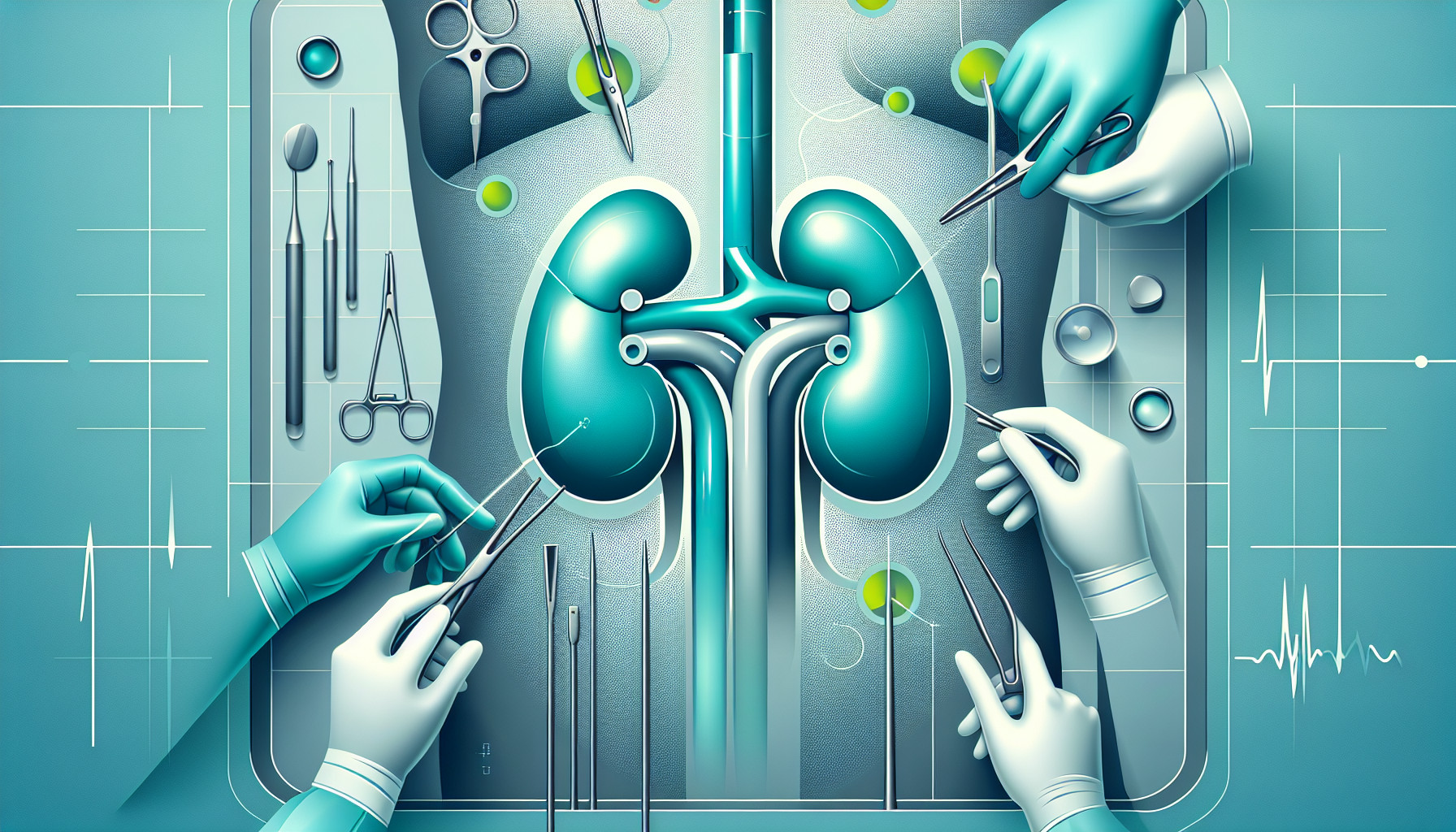Our Summary
This research paper discusses the evolution of kidney transplants over the last 50 years. A kidney transplant is a crucial procedure for individuals with advanced kidney disease, helping to improve their quality of life and extend their lifespan. However, even with significant medical advancements, there are still post-surgery risks and complications that can cause health issues or even death.
Some of these complications can be prevented by checking for and fixing any abnormalities in the patient before the surgery. It’s also vital to avoid any mistakes during all stages of the transplant process, from the removal of the donor’s kidney, through the preparation of the kidney, to the actual implantation.
After the surgery, careful monitoring by doctors is necessary. Despite all these precautions, surgical complications remain a significant risk for kidney transplant recipients.
FAQs
- What improvements have been made in kidney transplant procedures over the last 50 years?
- What are the common medical and surgical complications after kidney transplant?
- How can technical mishaps during the kidney transplant process be prevented?
Doctor’s Tip
One helpful tip a doctor might tell a patient about kidney transplant is to closely follow all postoperative care instructions provided by the medical team. This includes taking prescribed medications as directed, attending all follow-up appointments, monitoring for signs of infection or rejection, and maintaining a healthy lifestyle to support the new kidney. By following these guidelines, patients can help ensure a successful transplant outcome and minimize the risk of complications.
Suitable For
Patients who are typically recommended for kidney transplant are those with end-stage kidney disease who have failed other treatments such as dialysis. These patients may experience symptoms such as fatigue, nausea, swelling, and difficulty breathing. They may also have complications such as high blood pressure, anemia, and bone disease. Kidney transplant is recommended for these patients to improve their quality of life and increase their life expectancy. Additionally, patients who have a suitable donor, such as a family member or a deceased donor, are considered good candidates for kidney transplant. It is important for patients to undergo a thorough evaluation by a transplant team to determine their eligibility for surgery and to assess any potential risks or complications.
Timeline
Before kidney transplant:
Diagnosis of end-stage kidney disease: Patients are diagnosed with end-stage kidney disease and are referred for evaluation for kidney transplant as a treatment option.
Evaluation and testing: Patients undergo a series of tests and evaluations to assess their suitability for kidney transplant, including blood tests, imaging studies, and psychological evaluations.
Placement on the transplant waiting list: Once deemed eligible for transplant, patients are placed on the national transplant waiting list and wait for a suitable donor match.
Pre-transplant preparation: Patients receive education about the transplant process, undergo preoperative testing, and make necessary lifestyle changes to prepare for surgery.
After kidney transplant:
Surgery: The kidney transplant surgery takes place, where the diseased kidney is removed and replaced with a healthy kidney from a living or deceased donor.
Recovery and monitoring: Patients are closely monitored in the hospital for any complications and are given immunosuppressive medications to prevent rejection of the new kidney.
Follow-up care: Patients are discharged from the hospital and continue to receive regular follow-up care, including frequent visits to the transplant center for monitoring of kidney function and medication management.
Long-term care: Patients must adhere to a strict medication regimen, follow a healthy lifestyle, and attend regular appointments with their healthcare team to ensure the long-term success of the transplant.
Potential complications: Despite advances in transplant surgery and postoperative care, patients may still experience complications such as rejection, infection, and side effects from immunosuppressive medications. Close monitoring and early intervention are crucial in managing these complications.
What to Ask Your Doctor
What are the potential risks and benefits of a kidney transplant for me?
How long is the waiting list for a kidney transplant and what factors determine my place on the list?
What tests will I need to undergo before being approved for a kidney transplant?
What is the success rate of kidney transplants at this hospital or transplant center?
What is the average recovery time after a kidney transplant and what can I expect during the recovery process?
What medications will I need to take after the transplant and what are the potential side effects?
How often will I need to follow up with my transplant team after the surgery?
What lifestyle changes will I need to make after the transplant to ensure the success of the procedure?
What are the signs and symptoms of rejection that I should watch out for?
What support services are available for kidney transplant patients, such as counseling or support groups?
Reference
Authors: Haberal M, Boyvat F, Akdur A, Kırnap M, Özçelik Ü, Yarbuğ Karakayalı F. Journal: Exp Clin Transplant. 2016 Dec;14(6):587-595. PMID: 27934557
